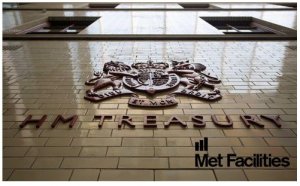HM Treasury consults on the implementations of 5MLD
HM Treasury has released its consultation on the steps the UK Government proposes to take to meet the UK’s expected obligation to transpose the Firth Anti-Money Laundering Directive (5MLD) into national law.
It’s worth noting quickly the difference between MLD4 and MLD5:
- improving transparency – beneficial ownership registers for legal entities, such as companies, will be public. This wider access to beneficial ownership information will enhance public scrutiny and will contribute to preventing the misuse of legal entities for money laundering and terrorist financing purposes. In addition, access to data on the beneficial owner of trusts will be accessible without any restrictions to Member State competent authorities, Financial Intelligence Units, professional sectors subject to anti-money laundering rules and to other persons who can demonstrate a legitimate interest. Also, when a trust is a beneficial owner of a company, access to this information can be requested in writing
- better connectivity of beneficial ownership registers – Member State registers on beneficial ownership information will be interconnected directly to facilitate cooperation and exchange of information between Member States
- lifting the anonymity on electronic money products – Member States have the possibility to allow the anonymous use of electronic money products in two situations: (i) when customers use their prepaid instrument (such as prepaid cards) directly in the shop for a maximum transaction amount of EUR 150; and (ii) when customers carry out an online transaction with a prepaid card below EUR 50
- extending the scope of the anti-money laundering regime – anti money laundering rules will apply to entities which provide services that are in charge of holding, storing and transferring virtual currencies, to persons who provide similar kinds of services to those provided by auditors, external accountants and tax advisers which are already subject to the 4MLD and to persons trading in works of art
- improving the checks on transactions involving high risk third countries – Member States will have to ensure that the sectors dealing with countries presenting strategic deficiencies in their anti-money laundering and counter terrorism financing regime listed by the Commission apply systematic enhanced controls on their financial transactions from and to these countries. The list of checks is now harmonised. Also, the Commission will include on its list third countries with low transparency on beneficial ownership information, no appropriate and dissuasive sanctions or which do not cooperate nor exchange information
- centralised bank account registers or retrieval systems – Member States are required to set up centralised bank account registers or retrieval systems to identify holders of bank and payment accounts. The Commission will work on the technical aspects to ensure the interconnection of such registers or retrieval systems
- enhancing the powers of EU Financial Intelligence Units – EU Financial Intelligence Units will have access to more information through centralised bank and payment account registers or data retrieval systems
- enhanced cooperation between EU financial supervisory authorities – the Directive enhances the exchange of information and cooperation between EU financial supervisory authorities in full respect of confidentiality rules, including with the European Central Bank
With Member States being required to bring into force the laws, regulations and administrative provisions necessary to comply with the Directive by January 2020.
As a result, HM Treasury notes:
- 5MLD defines cryptoasset exchanges as “providers engaged in exchange services between cryptoassets and fiat currencies”. However, HM Treasury is also consulting on regulating providers engaged in alternative exchange services, in addition to purely fiat-to-crypto exchange
- HM Treasury is seeking views on whether the 5MLD definition of “virtual currencies” encompasses all types of cryptoassets identified by the Cryptoassets Taskforce or whether this definition may need to be amended
- amending Regulation 28(3)(b) of the Money Laundering, Terrorist Financing and Transfer of Funds (Information on the Payer) Regulations 2017 to bring them into line with the Financial Action Task Force (FATF) standards. Regulation 28(3)(b) currently states that relevant persons must, where a customer is a body corporate, take ‘reasonable measures’ to determine and verify the law to which a body corporate is subject, its constitution and the full names of the board of directors and the senior persons responsible for the operations of the body corporate. The FATF standards (Recommendation 10.9) go further than this, recommending relevant persons to be required to determine and verify this information
- Article 18a(1) of the 5MLD provides the UK with the option to impose an additional requirement. This would require obliged entities to ensure that whenever a customer makes their first payment involving a designated high-risk third country, that payment is carried out through an account in the customer’s name with a credit institution subject to the 5MLD’s customer due diligence standards. The UK will not transpose this optional requirement
- HM Treasury does not expect to specify a full list of types of express trust within the legislation transposing 5MLD, given the very wide range of ways in which trusts are used. Instead, the onus will be on trustees and their agents to determine whether their trust is an express trust or not. HM Treasury has set out examples of the categories of UK trusts that are likely to fall within the definition of an express trust
The consultation closes on 10th June 2019.
Further information:
To read more, please follow this link:
https://www.gov.uk/government/consultations/transposition-of-the-fifth-money-laundering-directive?utm_source=ed7bd494-ea09-48f3-a8f0-dff1a83f7c7a&utm_medium=email&utm_campaign=govuk-notifications&utm_content=immediate
Contact us here
Other articles
Please Note: This publication is not intended to be a comprehensive review of all developments in the law and practice, or to cover all aspects of those referred to. Readers should take legal advice before applying the information contained in this publication to specific issues or transactions.

HM Treasury consults on the implementations of 5MLD






